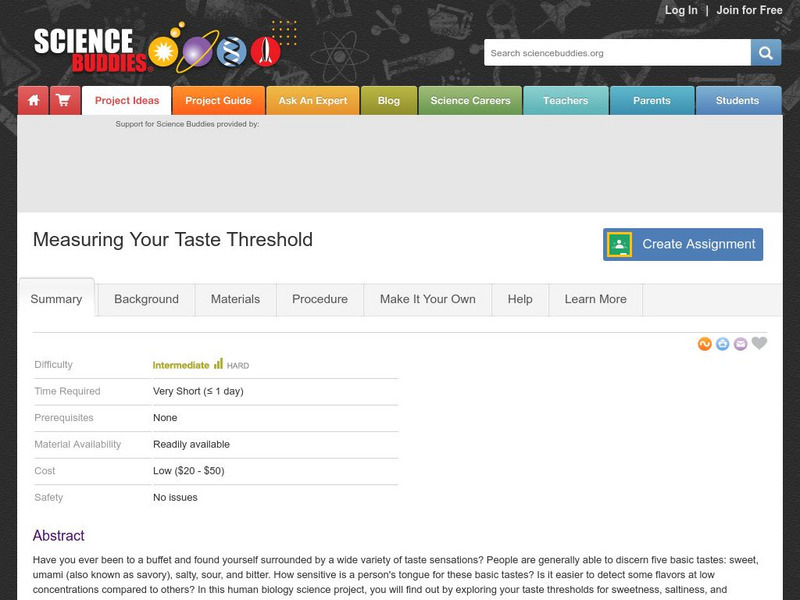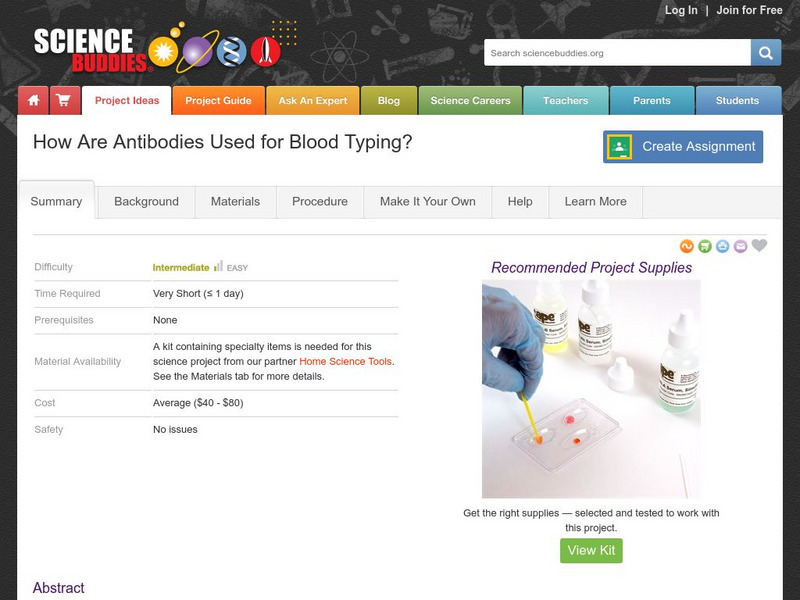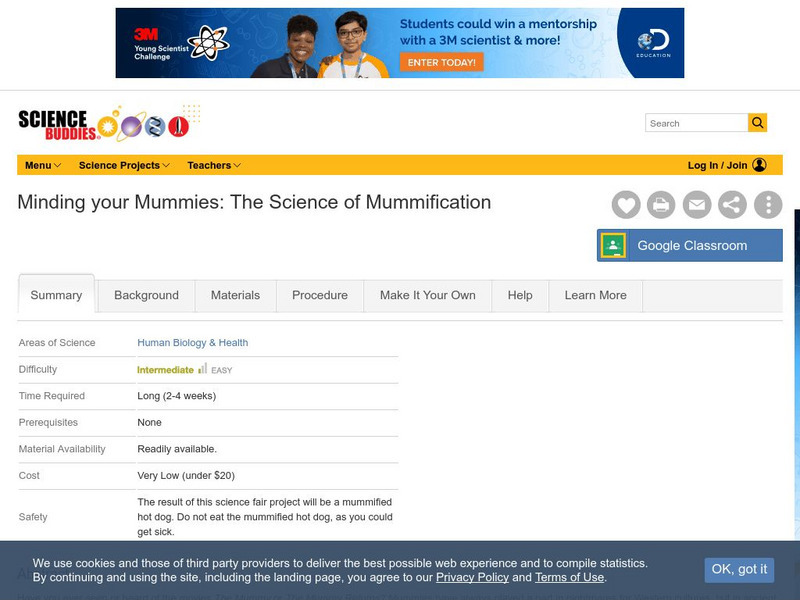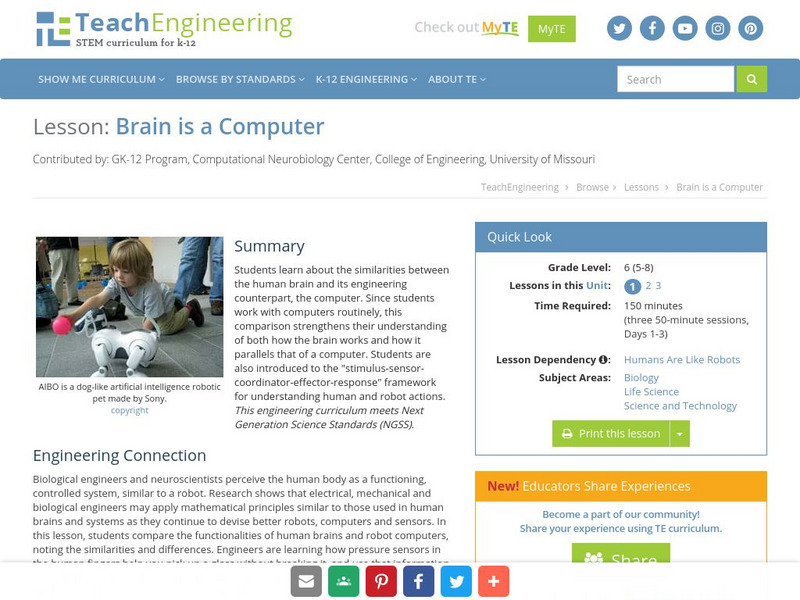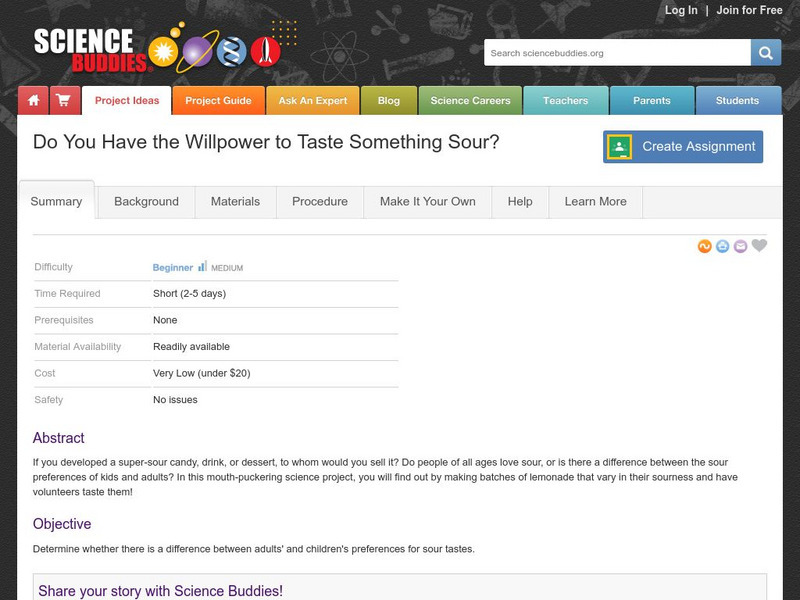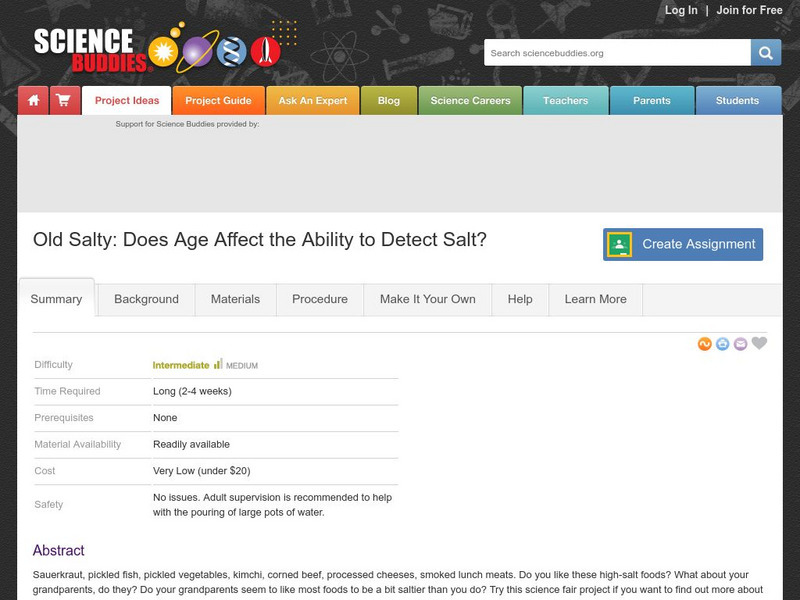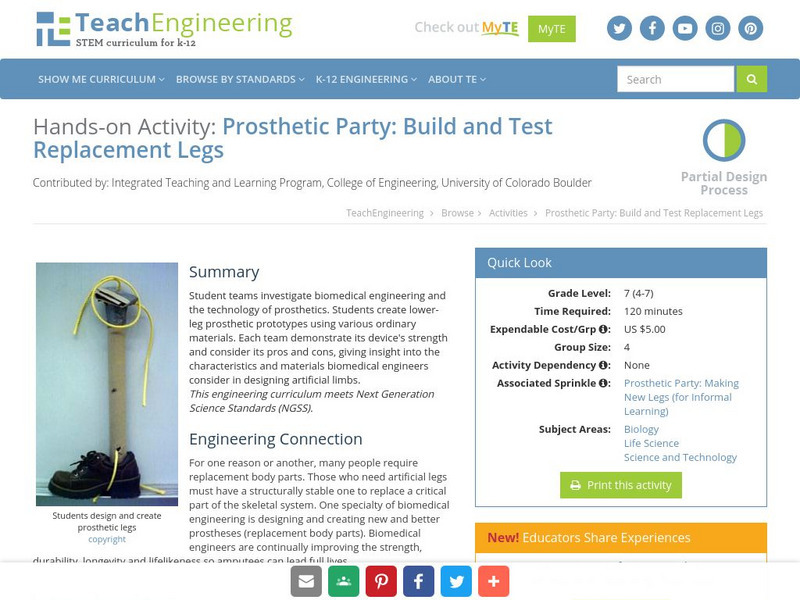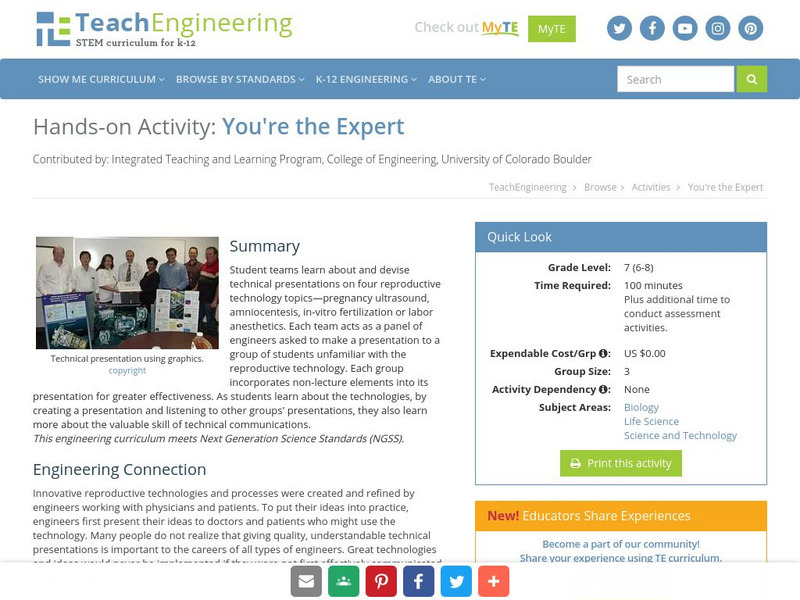Science Buddies
Science Buddies: The Nose Knows Smell but How About Taste?
As if sniffles and clogged sinuses are bad enough, everything seems to taste bland and flavorless when we are sick. Gather up a few volunteers, hit the kitchen, and try this experiment to find out if there is really truth to the idea...
Science Buddies
Science Buddies: Measuring Your Taste Threshold
Some people are more susceptible to flavors than others. This experiment asks you to test your threshold for the three types of taste our tongues are capable of experiencing: salty, sweet, and sour.
Other
Marine Biological Laboratory: Why Study Marine Organisms for Biomedical Research
Descriptions of various research projects using marine organisms that have direct impact on medical research. The resource has a perspective on how medicine makes progress.
Science Buddies
Science Buddies: How Are Antibodies Used for Blood Typing?
The human immune system has various ways of responding to an infection caused by bacteria or viruses. Our bodies produce proteins (antibodies) that are highly specific for the infectious agent as a part of our "humoral" immune response....
TeachEngineering
Teach Engineering: Are We Like Robots?
Students explore the similarities between how humans move and walk and how robots move, so they come to see the human body as a system from an engineering point-of-view. Movement results from decision making (deciding to walk and move)...
TeachEngineering
Teach Engineering: Polluted Air = Polluted Lungs
To gain a better understanding of the roles and functions of components of the human respiratory system and our need for clean air, students construct model lungs that include a diaphragm and chest cavity. They see how air moving in and...
Science Buddies
Science Buddies: A Day in the Life of Your Heart
Heart rates can be determined by the amount of physical activity your body is engaging in. The more physically active you are, the faster your heart beats. You can measure the rate your heart is beating by taking your pulse. This science...
Science Buddies
Science Buddies: Minding Your Mummies: The Science of Mummification
Mummies have always played a part in nightmares for Western cultures, but in ancient Egypt, mummification was a serious religious ritual. They believed that preserving human remains was necessary so that the previous owner could enjoy...
TeachEngineering
Teach Engineering: Brain Is a Computer
Students learn about the similarities between the human brain and its engineering counterpart, the computer. Since students work with computers routinely, this comparison strengthens their understanding of both how the brain works and...
TeachEngineering
Teach Engineering: Digestion Simulation
To reinforce students' understanding of the human digestion process, the functions of several stomach and small intestine fluids are analyzed, and the concept of simulation is introduced through a short, introductory demonstration of how...
Science Buddies
Science Buddies: Think Fast: Do Video Game Players Have Faster Reaction Time
Are you an avid video game player? Do you think this helps you have fast reaction times? This Science Buddies science project lays out an experiment to help you test your hypothesis. The Science Buddies project ideas are set up...
Science Buddies
Science Buddies: Do You Have the Willpower to Taste Something Sour?
Do try this mouth-puckering science fair project to find out if people of all ages love sour tastes, or if there a difference between the sour preferences of kids and adults. You might be able to sell creations of your own based on your...
Science Buddies
Science Buddies: Old Salty: Does Age Affect the Ability to Detect Salt?
Sauerkraut, pickled fish, pickled vegetables, kimchi, corned beef, processed cheeses, smoked lunch meats. Do you like these high-salt foods? What about your grandparents, do they? Do your grandparents seem to like most foods to be a bit...
Science Buddies
Science Buddies: Got Iron? Measure the Concentration of Iron in Water
Iron is an important mineral essential for good health. Iron deficiency can be a problem. In this science fair project, use a simple iron test kit to measure the concentration of iron in water. This experiement is explained clearly and...
Alabama Learning Exchange
Alex: New Town Health Club
Over the course of the year, the students in Human Anatomy and Physiology will design a health club. As part of this year-long project, the students will develop a brochure or print advertisement for the health club. This project will...
Cynthia J. O'Hora
Mrs. O's House: Concussion and Head Injury Action Plan
Concussions and head injuries are the buzz in sports today. Address concussion and head injuries in the classroom and provide pupils resources to research and report on findings.
TeachEngineering
Teach Engineering: Prosthetic Party
Student teams investigate biomedical engineering and the technology of prosthetics. Students create a model prosthetic lower leg using various materials. Each team demonstrate its prosthesis' strength and consider its pros and cons,...
TeachEngineering
Teach Engineering: You're the Expert
Student teams learn about and devise technical presentations on four reproductive technology topics pregnancy ultrasound, amniocentesis, in-vitro fertilization or labor anesthetics. Each team acts as a panel of engineers asked to make a...



